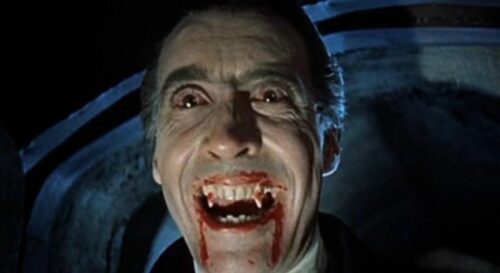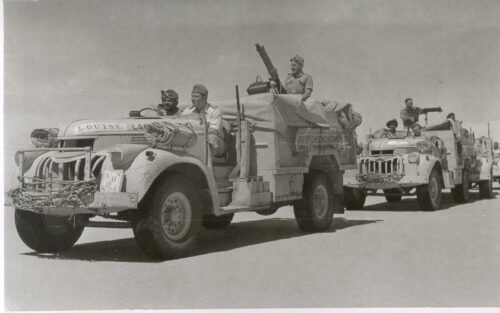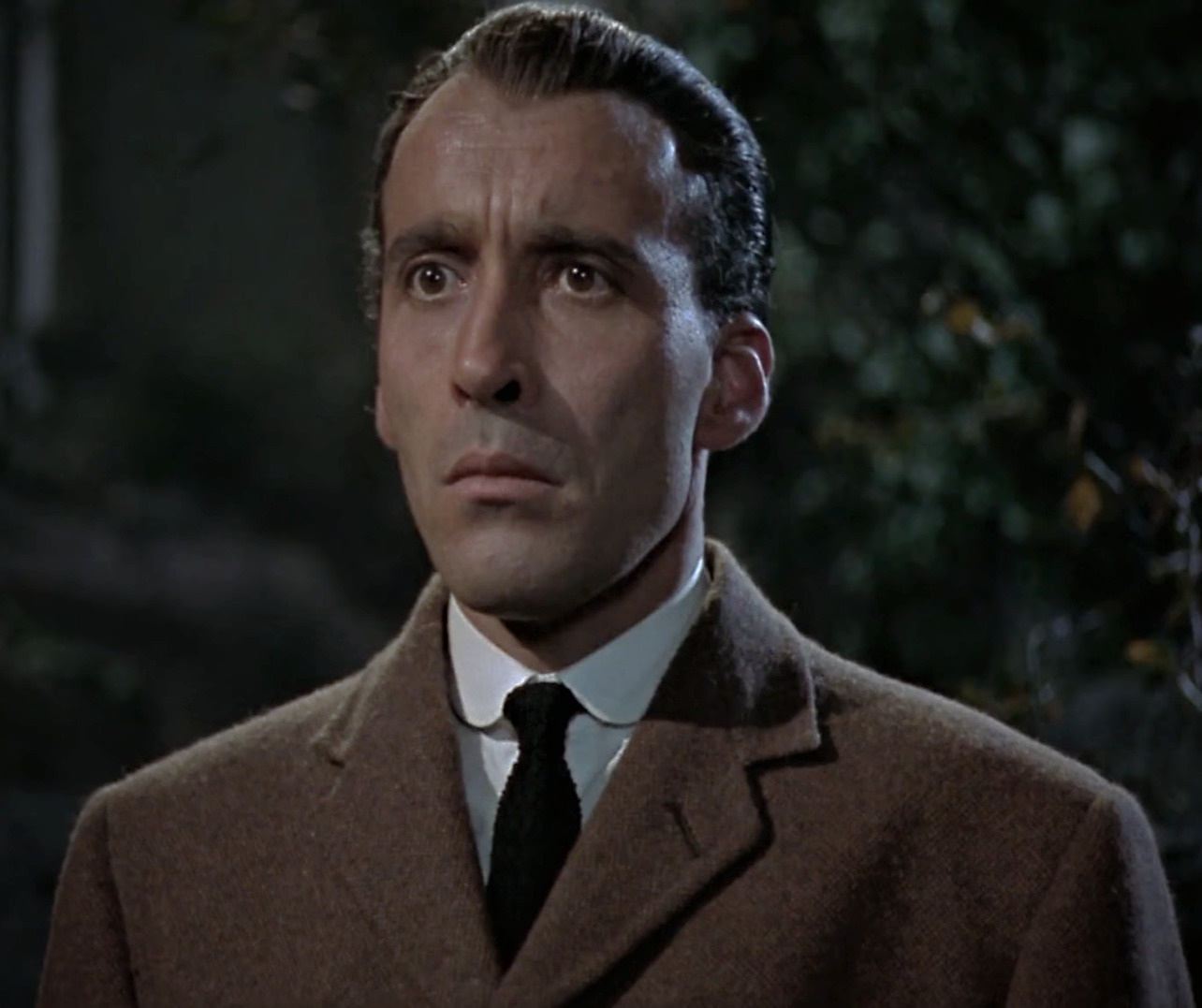Christopher Lee in scene from “The Hound of the Baskervilles” (1959). United Artists. Public Domain.
Sir Christopher Lee CBE CSU, renowned for his acting career, had an equally fascinating life off-screen. His service during World War II, particularly his alleged involvement with the Special Operations Executive (SOE), has been a subject of much interest and debate.
Lee was the stepcousin of Ian Fleming, the creator of James Bond. They were not only relatives but also friends and regular golfing partners. Lee was also a close personal friend to Sir Roger Moore, whom he first met in 1948. Lee played the role of Francisco Scaramanga in the James Bond film The Man with the Golden Gun, with Moore portraying Bond.
Lee, famed for his villainous roles, had nearly been cast as Dr. No in the first Bond film in 1962. His strong screen presence and unique charisma intrigued the producers. Fleming even invited Lee to play the role during a golf game, unaware that Joseph Wiseman had already been selected. Consequently, Wiseman played Dr. No, securing his own iconic status in film history.
Lee was a prolific actor with over 200 credits to his name in a variety of films spanning several decades and genres. These films showcase Lee’s immense range, from iconic villains to more nuanced roles. His deep baritone voice, piercing eyes, and natural charisma made him an unforgettable presence on screen.

World War II Service
Lee was born in Belgravia, London, England in 1922. His mother, Countess Estelle Marie Carandini di Sarzano, was of Italian nobility and his father Lieutenant Colonel Geoffrey Trollope Lee, was decorated hero of the First World War. He was just 17 when Britain entered World War II. Eager to contribute, he volunteered with the Finnish Army during the Soviet Union’s invasion of Finland during their Winter War in 1939. However, his role was limited to guard duty, and he did not see combat.
Lee later enlisted in the Royal Air Force (RAF) in 1941. He trained with de Havilland Tiger Moths, but a problem with his optic nerve prevented him from flying. Consequently, he served as an RAF intelligence officer, briefing and debriefing pilots and liaising with other units.
Lee’s story becomes more intriguing as he claimed to have been “attached” to several elite units during the war, including the Long Range Desert Group (LRDG), the Special Air Service (SAS), and the Special Operations Executive (SOE).
The Long Range Desert Group (LRDG) was a reconnaissance and raiding unit of the British Army during the Second World War. It was founded in Egypt in June 1940 and was involved in deep penetration, covert reconnaissance patrols, and intelligence missions.

The Special Air Service (SAS) is a special forces unit of the British Army. It was founded as a regiment in 1941 by David Stirling, and in 1950 it was reconstituted as a corps. The unit specializes in counterterrorism, hostage rescue, direct action, and special reconnaissance.
The Special Operations Executive (SOE) was a secret British World War II organization formed in 1940 to conduct espionage, sabotage, and reconnaissance in Axis occupied countries and to aid local resistance movements.
Stories abound about Lee’s alleged exploits, such as sneaking behind enemy lines, destroying Luftwaffe aircraft, and helping retake Sicily. However, these claims have been met with skepticism due to the lack of corroborating evidence.
The extent of Lee’s involvement with these units is unclear and somewhat controversial. Some historians have suggested that Lee may have embellished his role. According to one account, Lee served as an RAF liaison officer attached to the SAS and SOE at various times between 1943 and 1945, but he did not serve in these units.
After the war, Lee was reportedly part of the Central Registry of War Crimes and Security Suspects (CROWCASS), which tracked down Nazis. He described witnessing “dreadful, dreadful things,” and men dying from “torture,” “bombs,” and “mutilation”. However, his actual involvement with this organization is also unclear.
An Extraordinary Life
Despite the controversy surrounding his military service, there’s no denying that Christopher Lee led an extraordinary life, marked by service to his country and a remarkable acting career. Lee’s service during the war was in any case significant and well appreciated. He received medals for bravery from the British, Yugoslavian, Czech, and Polish governments. Lee passed away on June 7, 2015.
It is important to note that, while this article is based on available information, some details about Christopher Lee’s service during World War II remain uncertain due to the secretive nature of the operations he was allegedly involved in. In the end we may never know the truth.
*The views and opinions expressed on this website are solely those of the original authors and contributors. These views and opinions do not necessarily represent those of Spotter Up Magazine, the administrative staff, and/or any/all contributors to this site.

